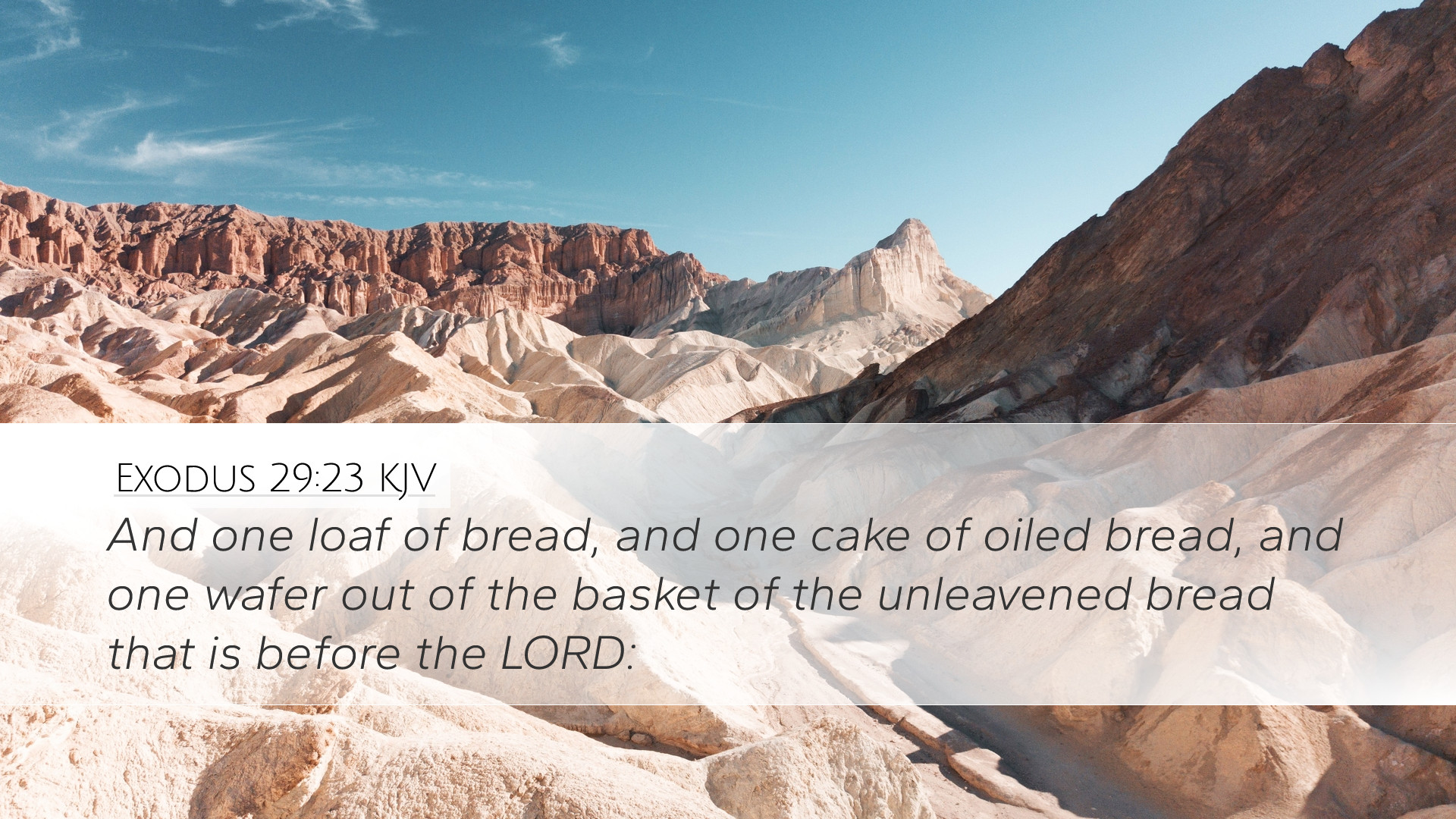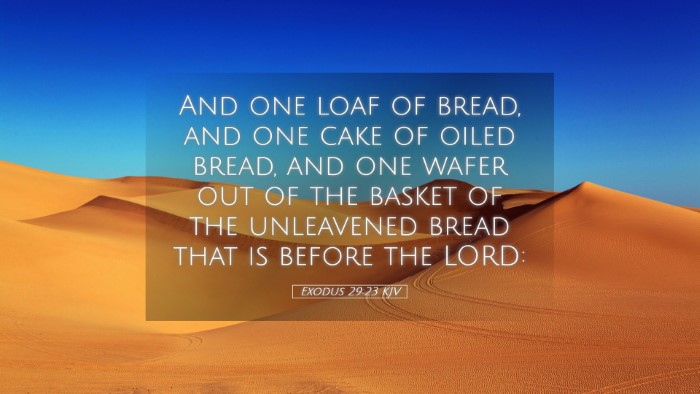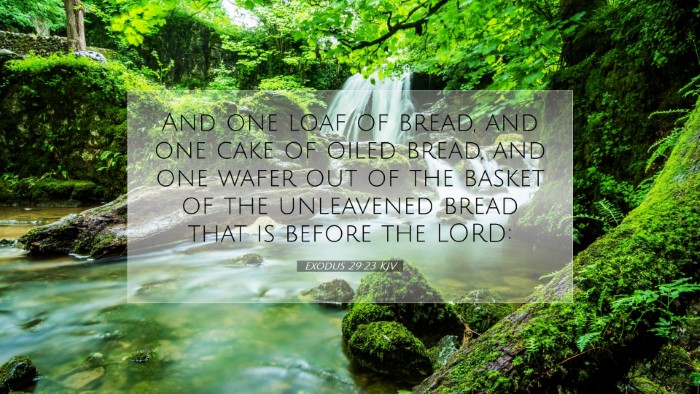Commentary on Exodus 29:23
Verse Text: "And one of the loaves of bread, and of the cake of oiled bread, and one of the wafers out of the basket of the unleavened bread that is before the LORD."
Introduction
This verse is part of the consecration of Aaron and his sons as priests and highlights the offerings that are to be made before the Lord as part of the ordination process. It represents the covenant relationship between God and His chosen priests, emphasizing the importance of holiness, devotion, and service in worship.
Significance of the Offerings
The offerings mentioned in this verse—loaves of bread, cakes of oiled bread, and unleavened wafers—are significant in both their physical attributes and their spiritual symbolism.
-
Loaf of Bread: This represents sustenance and is a symbol of God’s provision for His people. It signifies that a priest must be spiritually nourished in order to serve effectively.
-
Cake of Oiled Bread: The oil symbolizes the Holy Spirit. The presence of oil in the cake indicates an anointing for service and highlights the importance of being filled with the Spirit for effective ministry.
-
Wafers of Unleavened Bread: Unleavened bread signifies purity, a lack of corruption, and holiness. The absence of leaven reflects the call to a life free from sin and compromise when serving God.
Historical Context
Understanding the historical context of Exodus 29:23 is essential for grasping its full meaning. The priesthood was a divinely instituted office, set apart to mediate between God and the people of Israel. This particular instruction for offerings during ordination underscores the sacredness of their role.
Matthew Henry notes that the exactness of these offerings reflects God’s desire for order and reverence in worship. Aaron and his sons were not merely to perform duties; they were to embody the spirituality and strict holiness expected in their office as intermediaries.
The Theological Implications
This verse sheds light on the broader theme of sacrificial offerings throughout the Bible. Each element of the offering serves to foreshadow the ultimate sacrifice of Christ and emphasizes key theological concepts such as:
-
Representation: The priest stands in the gap between God and the people—a role ultimately fulfilled in the person of Christ, the Great High Priest (Hebrews 4:14-16).
-
Holiness: The requirements of these offerings denote the seriousness with which God views holiness. As Barnes notes, the purity and correctness required reflect the nature of God Himself.
-
Community: These offerings were not only for the priests but involved the entire community—a reminder that worship and service require collective engagement with God’s purposes.
Spiritual Application
For pastors, students, and scholars, Exodus 29:23 presents various applications for contemporary ministry:
-
Preparation for Ministry: Just as Aaron and his sons were consecrated through specific offerings, modern ministers must engage in spiritual preparation, ensuring they are grounded in the Word and filled with the Holy Spirit.
-
Emphasis on Holiness: The call for one to live a life marked by holiness remains pertinent. Leaders are to model a lifestyle devoid of moral compromise, continuously striving for purity in both personal and communal worship.
-
Dependency on God: The bread and oil symbolize the believer's dependence upon the Lord for daily sustenance, both physically and spiritually. This dependency informs the pastoral approach of relying on God’s provision in ministry work.
-
Encouragement for Community Cohesion: The offerings tie individuals to their community and encourage unity. Pastors should cultivate a spirit of togetherness and collective worship in their congregations, embodying the priestly role together.
-
Understanding Sacrificial Living: The concept of sacrifice in our service to God has a modern application in our willingness to give up our preferences and desires for the sake of others and the gospel.
-
Engaging with the Holy Spirit: The presence of oil signals anointing and empowerment. Therefore, emphasizing the need for the continual work of the Holy Spirit is critical in the life of believers and churches alike.
Conclusion
Exodus 29:23 serves as a vivid reminder of the standards God sets for His representatives. The intricate details of the priestly offerings reflect theological themes of sacrifice, holiness, and dependence on God’s provision. For pastors and theologians, the call is clear: to approach ministry with reverence and integrity, mirroring the beauty of the divine principles established in this foundational text.


